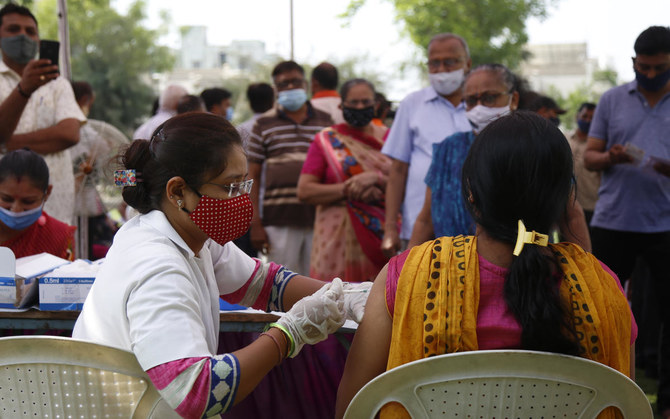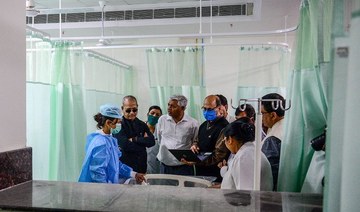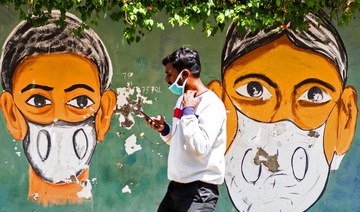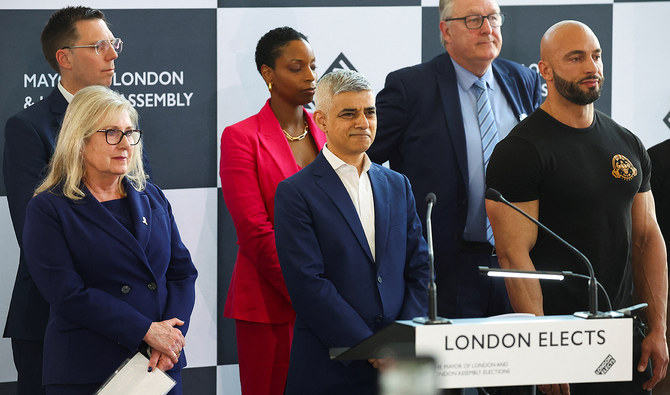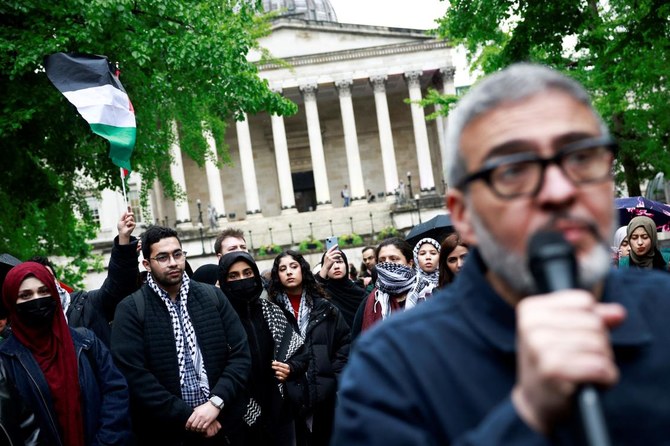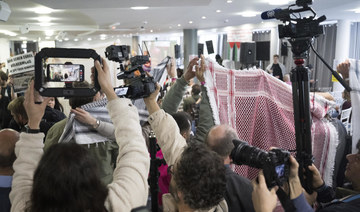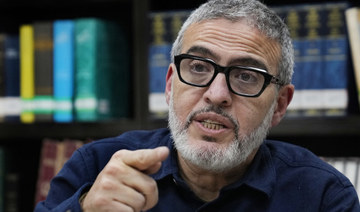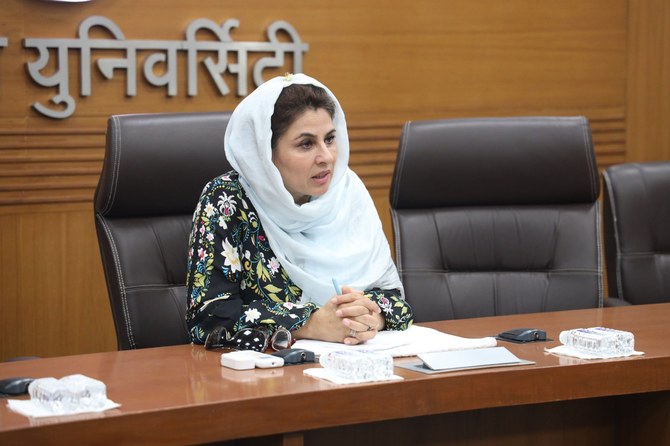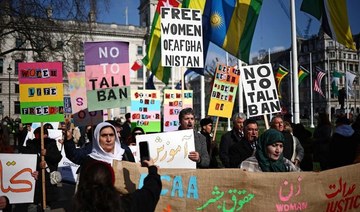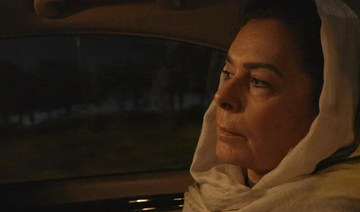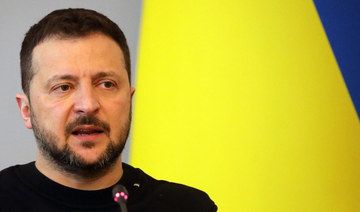NEW DELHI: With more than 100,000 coronavirus cases reported across India for three consecutive days, experts on Wednesday feared that the situation would soon “explode” out of control, with the nation of 1.4 billion emerging as the “global epicenter” of the disease.
On Wednesday alone, India recorded 115,736 new infections and 630 deaths, taking its total case tally to 13 million since the outbreak in March last year.
Its death toll is 166,177 — making it the world’s third-worst-hit nation after the US and Brazil — with many experts saying that India was facing the threat of a devastating and deadlier second wave of the virus going forward.
“India is ground zero of coronavirus now,” Dr. Harjit Singh Bhatti, president of the Progressive Medicos & Scientists Forum, told Arab News. “It is an epicenter of the virus in the world, as nowhere else are the cases increasing with such menacing alarm.”
He blamed the government for its “slow response” in vaccinating the public and “not being stringent” in enforcing anti-COVID-19 protocols.
Dr. Adarsh Pratap Singh, president of the Resident Doctors’ Association of the All India Institute of Medical Sciences, said people had become “careless about COVID-19” and that this attitude had led to the rise in cases.
He added that, since authorities were unaware of how many variants COVID-19 had mutated into, it would not take much time for India to become an epicenter if one looked at the current trends.
“India might explode if the corona variant reaches rural areas,” he told Arab News. “Since the mobility of the people has increased, so the cases going up cannot be ruled out.”
As a precautionary measure to contain the spread of the outbreak, local governments began imposing harsh restrictions on the public starting from Wednesday.
New Delhi announced a night curfew from 10 p.m. to 5 a.m. for a month after reporting 5,100 new cases on Wednesday – the highest this year.
It also led Delhi High Court to issue an order making it mandatory to wear masks “even if a person is driving alone in a car.”
The situation is equally alarming in the western state of Maharashtra, home to the financial capital Mumbai, which accounts for half of the cases in India.
On Wednesday Maharashtra registered 55,000 cases, with the state government issuing an urgent appeal for New Delhi to facilitate its hospitals with oxygen supplies.
Several cities in the state, including Mumbai, have been placed under a nightly curfew.
“The situation is very grim now, and we are overstretched in Mumbai,” Dr. Shariva Randive, of Mumbai’s Sion Hospital, told Arab News.
Randive explained that the ongoing vaccination drive and a surge in COVID-19 cases had stressed the medical professionals in the state.
“The state is trying its best to address the issue, and I am sure with support from the center the state government can tide over the crisis.”
But she feared that the “situation might explode if the vast rural masses are exposed to the pandemic.”
The western state of Gujarat, the northern state of Punjab and the central Indian state of Chhattisgarh are also bearing the brunt of the outbreak, with each state imposing night curfews and strict enforcement of anti-virus measures.
Prime Minister Narendra Modi has called for an emergency meeting on Thursday with the chief ministers of all the states, even as the government blamed the public’s “complacency” for the spike.
“Only because of complacency, the rise in social gatherings, laxity in the corona-appropriate behavior – all these are responsible for the surge in the cases,” Dr. Rajni Kant, from the government’s Indian Council of Medical Research, told Arab News on Wednesday.
He underlined the importance of vaccination and “COVID-appropriate behavior” to counter the menace of the virus.
India launched its vaccination drive on January 16, with 84 million people inoculated as of Tuesday.
“Vaccination is now being expanded, and more and more people are being covered. It is being escalated,” Kant added, expressing his reservations about calling India the “epicenter” of the virus.
“India is a vast country, with a big population that’s why you have a large number. But I am sure, with greater awareness and by following COVID-appropriate behavior, the number will come down.”
Dr. Dorairaj Prabhakaran, from the Public Health Foundation NGO, urged the government not to impose an all-India lockdown but to “follow decentralized measures to deal with the situation.”
A similar appeal was lodged by the National Restaurant Association Of India (NRAI), which said Wednesday that the night curfews threatened the millions of people associated with the food industry.
“We are also very worried about the fate of 7.3 million employees in the food and beverage sector,” said Kabir Suri, NRAI vice president.
He asked the government to provide some “immediate relief reforms to survive this second surge of COVID-19 which is even worse than the first one.”



